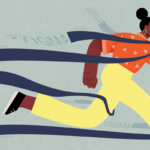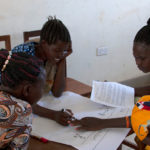
In the Democratic Republic of Congo, access to comprehensive abortion care remains a taboo topic, enshrined in restrictive legal frameworks and rigid social norms. Although some progress has been made, cultural and religious barriers still prevent women and girls from accessing the information and care they need.

Dr. Deeb Shrestha Dango, a dedicated OB-GYN and head of health systems and policy for Ipas Nepal, has stood at the forefront of this transformation. Navigating a shifting landscape of abortion rights and stigma, she has fought to expand abortion access in Nepal for over twenty years.

“For many people, seeking an abortion means facing isolation and judgement at every step toward getting the care they need. To dismantle abortion stigma, we must intervene not only at the individual level, but within the context of communities and societies.”

In the Democratic Republic of Congo, access to comprehensive abortion care remains a taboo topic, enshrined in restrictive legal frameworks and rigid social norms. Although some progress has been made, cultural and religious barriers still prevent women and girls from accessing the information and care they need.


